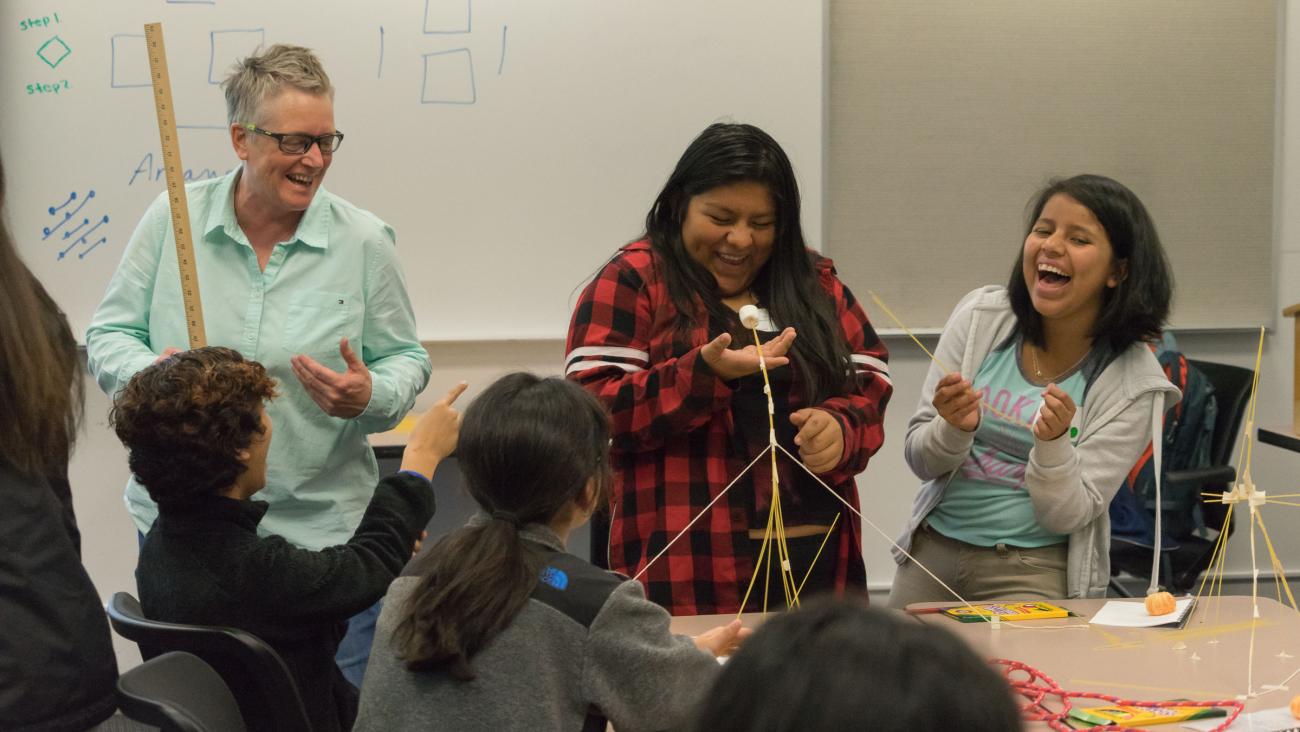
Stanford education workshop offers a different kind of math lesson
Math should be a team activity. Nobody is born with—or without—a “math brain.” And when it comes to solving math problems, it’s good to be slow about it.
These unconventional words of wisdom were just some of the takeaways from a workshop at Stanford Graduate School of Education (GSE) on March 10, which drew about 120 middle school girls from around the Bay Area for a day of mathematical challenges and inspiration. The day was planned as a project for Professor Jo Boaler's undergraduate class "How to Learn Mathematics," and the 18 students all worked with girls during the day.
This was no olympiad. The goal of the day was to change the way girls think about learning math.
“People think math class is all about getting the right answers to closed questions,” said Boaler, a professor of mathematics education and co-founder of Youcubed, a center at Stanford that provides resources for teaching and learning mathematics. “But all problems can be solved in different ways, and we should embrace that.”
Students worked in teams throughout the day to solve puzzles that called for original, deep and visual thinking—all critical to learning math, Boaler said. Prizes were awarded for various achievements, including creativity and improvement from one attempt to the next.
One popular challenge had teams competing to engineer the tallest tower out of dry spaghetti, tape, string, and a marshmallow—then repeating the activity to incorporate lessons learned the first time. The exercise showed the importance of persistent effort and out-of-the-box thinking, said Cathy Williams, co-founder and executive director of Youcubed.
“In mathematics, we’re trying to solve problems where people have no idea what the answers are,” Williams told the girls. “You did your best, you tried and tried again. That’s the nature of mathematics. That’s what we want you to keep doing.”
The day also featured talks by women working in science and mathematics, would-be role models who shared stories about their passions and life paths. Speakers included female Stanford undergraduates majoring in STEM fields, mechanical engineering Professor Allison Okamura and Stanford Provost Persis Drell, former dean of the School of Engineering and director of the SLAC National Accelerator Laboratory.
“Math is the language of science,” Drell said. “If you have that foundation, you’ll be prepared for so many fields.”
Some of the girls at the workshop had attended an 18-day summer math camp run by Youcubed in summer 2015 and came back for more.
“It’s been an amazing thing for them,” said Beverly Leano, an instructional coach with the Jefferson Elementary School District in Daly City, who accompanied a group of students from her district to the workshop. “They can delve into a problem and know that it’s OK to make mistakes, it’s OK to struggle, speed is not the answer. It makes them more motivated.”



